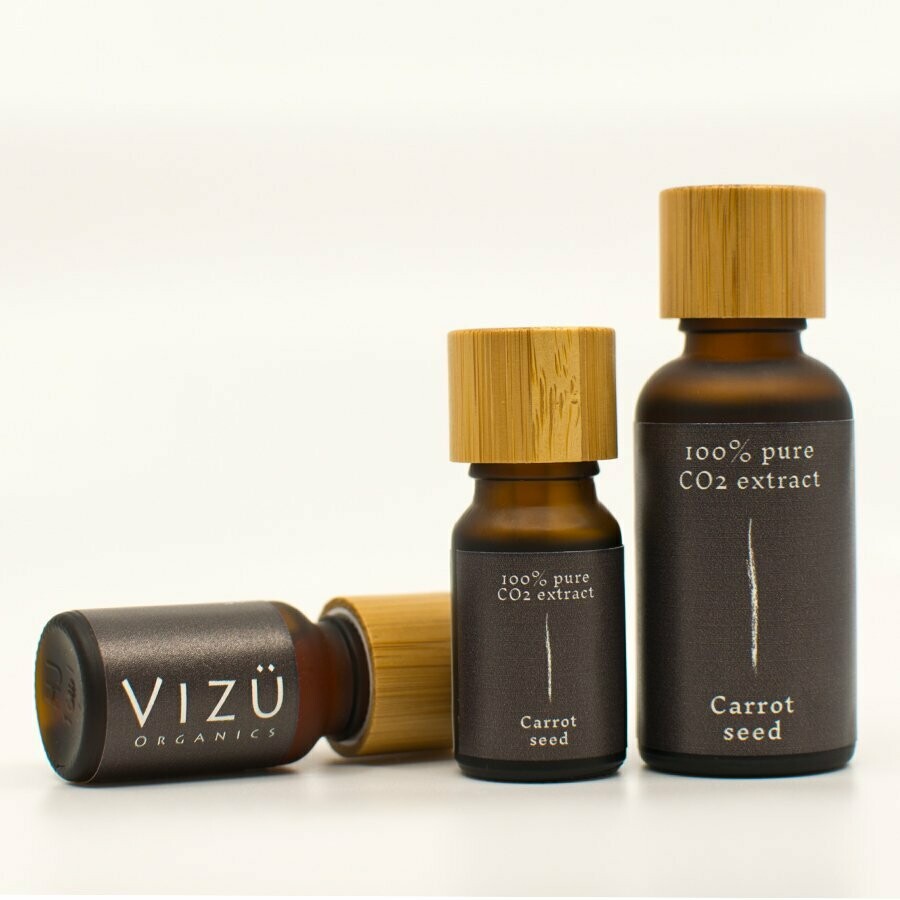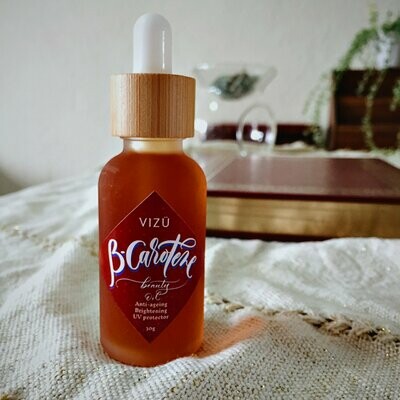Carrot seed CO2 extract
Botanical name: Daucus carota
Blends well with: Cinnamon bark, Cedarwood, Geranium, citrus and spice oils.
- Non-toxic, non-irritant, non-sensitizing.
A highly nutritious and beneficial humble plant that contains valuable amounts of vitamins A, C, B1 & B2. This oil is considered one of the best rejuvenating oils of all time! Its high content of beta-carotene gives this extract a natural UV blocker for the skin too.
Carrot seed CO2 is used primarily for its healing properties and emollient effects on the skin. It has high anti-oxidant properties which increases hydration and also protect against free radical damage. It also stimulates circulation, repairs and tones the skin, increases elasticity, reduces the formation of wrinkles and helps in lightening scars. It is also useful for balancing oily and dry skin, particularly beneficial for clogged or neglected skin, and dermatitis conditions such as eczema, psoriasis and rashes.
Extract of carrot seed is anti-septic and anti-bacterial, and due to its diuretic properties, it is useful for urinary conditions such as cystitis or prostatitis. It is said to be antilithic and deobstruent, helping to dissolve stones in the kidneys, and was also used in the treatment of gout and rheumatism.
Herbal Folk Tradition
Wild carrot, also known as Queen Anne’s lace, was regarded as having great medicinal value in Ancient Greece and the name originates from the Greek word "Carotos". Back then, carrots were only used in medicinal remedies, and only became recognized as an important food in the sixteenth century. Carrots were valued as a tonic for the stomach be the Greeks.
Historical evidence showed that wild carrot seed was utilized as a female contraceptive in Ancient Greece. In the 4th or 5th century B.C.E, Hippocrates made reference to the abortifacient properties of the plant, and Pliny the Elder described it as an emmenagogue.
Wild carrot served as both food and medicine in many Native American cultures,; they used an infusion of the blossoms in treatment of
diabetes. The Iroquois, one of the many Native American tribe, had many medicinal uses for the root, including to improve appetite, to treat blood and skin disorders, as a gynecological aid, and as a diuretic.
In Central and South America, the roots are used as an anti-fertility agent and to improve skin problems. Also, in Chinese tradition, it helped treat dysentery and to expel worms.
In North America, wild carrot flower essence is made and used like a homeopathic remedy. Its essence is said to integrate the earthly and cosmic poles to facilitate grounded spiritual insight.


